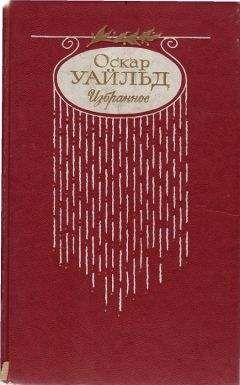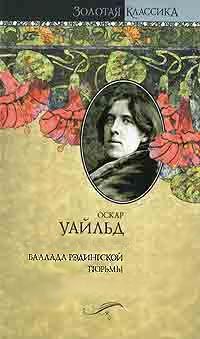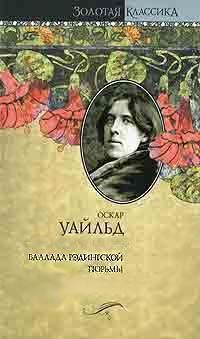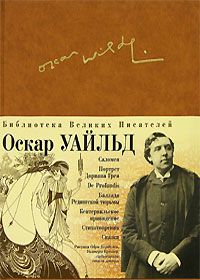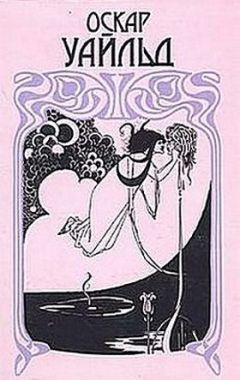Оскар Уайльд - Баллада Редингской тюрьмы
IV
There is no chapel on the day
On which they hang a man:
The Chaplain's heart is far too sick,
Or his face is far to wan,
Or there is that written in his eyes
Which none should look upon.
So they kept us close till nigh on noon,
And then they rang the bell,
And the Warders with their jingling keys
Opened each listening cell,
And down the iron stair we tramped,
Each from his separate Hell.
Out into God's sweet air we went,
But not in wonted way,
For this man's face was white with fear,
And that man's face was grey,
And I never saw sad men who looked
So wistfully at the day.
I never saw sad men who looked
With such a wistful eye
Upon that little tent of blue
We prisoners called the sky,
And at every careless cloud that passed
In happy freedom by.
But their were those amongst us all
Who walked with downcast head,
And knew that, had each got his due,
They should have died instead:
He had but killed a thing that lived
Whilst they had killed the dead.
For he who sins a second time
Wakes a dead soul to pain,
And draws it from its spotted shroud,
And makes it bleed again,
And makes it bleed great gouts of blood
And makes it bleed in vain!
Like ape or clown, in monstrous garb
With crooked arrows starred,
Silently we went round and round
The slippery asphalte yard;
Silently we went round and round,
And no man spoke a word.
Silently we went round and round,
And through each hollow mind
The memory of dreadful things
Rushed like a dreadful wind,
An Horror stalked before each man,
And terror crept behind.
The Warders strutted up and down,
And kept their herd of brutes,
Their uniforms were spick and span,
And they wore their Sunday suits,
But we knew the work they had been at
By the quicklime on their boots.
For where a grave had opened wide,
There was no grave at all:
Only a stretch of mud and sand
By the hideous prison-wall,
And a little heap of burning lime,
That the man should have his pall.
For he has a pall, this wretched man,
Such as few men can claim:
Deep down below a prison-yard,
Naked for greater shame,
He lies, with fetters on each foot,
Wrapt in a sheet of flame!
And all the while the burning lime
Eats flesh and bone away,
It eats the brittle bone by night,
And the soft flesh by the day,
It eats the flesh and bones by turns,
But it eats the heart alway.
For three long years they will not sow
Or root or seedling there:
For three long years the unblessed spot
Will sterile be and bare,
And look upon the wondering sky
With unreproachful stare.
They think a murderer's heart would taint
Each simple seed they sow.
It is not true! God's kindly earth
Is kindlier than men know,
And the red rose would but blow more red,
The white rose whiter blow.
Out of his mouth a red, red rose!
Out of his heart a white!
For who can say by what strange way,
Christ brings his will to light,
Since the barren staff the pilgrim bore
Bloomed in the great Pope's sight?
But neither milk-white rose nor red
May bloom in prison air;
The shard, the pebble, and the flint,
Are what they give us there:
For flowers have been known to heal
A common man's despair.
So never will wine-red rose or white,
Petal by petal, fall
On that stretch of mud and sand that lies
By the hideous prison-wall,
To tell the men who tramp the yard
That God's Son died for all.
Yet though the hideous prison-wall
Still hems him round and round,
And a spirit man not walk by night
That is with fetters bound,
And a spirit may not weep that lies
In such unholy ground,
He is at peace — this wretched man—
At peace, or will be soon:
There is no thing to make him mad,
Nor does Terror walk at noon,
For the lampless Earth in which he lies
Has neither Sun nor Moon.
They hanged him as a beast is hanged:
They did not even toll
A requiem that might have brought
Rest to his startled soul,
But hurriedly they took him out,
And hid him in a hole.
They stripped him of his canvas clothes,
And gave him to the flies;
They mocked the swollen purple throat
And the stark and staring eyes:
And with laughter loud they heaped the shroud
In which their convict lies.
The Chaplain would not kneel to pray
By his dishonoured grave:
Nor mark it with that blessed Cross
That Christ for sinners gave,
Because the man was one of those
Whom Christ came down to save.
Yet all is well; he has but passed
To Life's appointed bourne:
And alien tears will fill for him
Pity's long-broken urn,
For his mourner will be outcast men,
And outcasts always mourn.
V
I know not whether Laws be right,
Or whether Laws be wrong;
All that we know who lie in goal
Is that the wall is strong;
And that each day is like a year,
A year whose days are long.
But this I know, that every Law
That men have made for Man,
Since first Man took his brother's life,
And the sad world began,
But straws the wheat and saves the chaff
With a most evil fan.
This too I know — and wise it were
If each could know the same—
That every prison that men build
Is built with bricks of shame,
And bound with bars lest Christ should see
How men their brothers maim.
With bars they blur the gracious moon,
And blind the goodly sun:
And they do well to hide their Hell,
For in it things are done
That Son of God nor son of Man
Ever should look upon!
The vilest deeds like poison weeds
Bloom well in prison-air:
It is only what is good in Man
That wastes and withers there:
Pale Anguish keeps the heavy gate,
And the Warder is Despair
For they starve the little frightened child
Till it weeps both night and day:
And they scourge the weak, and flog the fool,
And gibe the old and grey,
And some grow mad, and all grow bad,
And none a word may say.
Each narrow cell in which we dwell
Is foul and dark latrine,
And the fetid breath of living Death
Chokes up each grated screen,
And all, but Lust, is turned to dust
In Humanity's machine.
The brackish water that we drink
Creeps with a loathsome slime,
And the bitter bread they weigh in scales
Is full of chalk and lime,
And Sleep will not lie down, but walks
Wild-eyed and cries to Time.
But though lean Hunger and green Thirst
Like asp with adder fight,
We have little care of prison fare,
For what chills and kills outright
Is that every stone one lifts by day
Becomes one's heart by night.
With midnight always in one's heart,
And twilight in one's cell,
We turn the crank, or tear the rope,
Each in his separate Hell,
And the silence is more awful far
Than the sound of a brazen bell.
And never a human voice comes near
To speak a gentle word:
And the eye that watches through the door
Is pitiless and hard:
And by all forgot, we rot and rot,
With soul and body marred.
And thus we rust Life's iron chain
Degraded and alone:
And some men curse, and some men weep,
And some men make no moan:
But God's eternal Laws are kind
And break the heart of stone.
And every human heart that breaks,
In prison-cell or yard,
Is as that broken box that gave
Its treasure to the Lord,
And filled the unclean leper's house
With the scent of costliest nard.
Ah! happy day they whose hearts can break
And peace of pardon win!
How else may man make straight his plan
And cleanse his soul from Sin?
How else but through a broken heart
May Lord Christ enter in?
And he of the swollen purple throat.
And the stark and staring eyes,
Waits for the holy hands that took
The Thief to Paradise;
And a broken and a contrite heart
The Lord will not despise.
The man in red who reads the Law
Gave him three weeks of life,
Three little weeks in which to heal
His soul of his soul's strife,
And cleanse from every blot of blood
The hand that held the knife.
And with tears of blood he cleansed the hand,
The hand that held the steel:
For only blood can wipe out blood,
And only tears can heal:
And the crimson stain that was of Cain
Became Christ's snow-white seal.
VI
In Reading gaol by Reading town
There is a pit of shame,
And in it lies a wretched man
Eaten by teeth of flame,
In burning winding-sheet he lies,
And his grave has got no name.
And there, till Christ call forth the dead,
In silence let him lie:
No need to waste the foolish tear,
Or heave the windy sigh:
The man had killed the thing he loved,
And so he had to die.
And all men kill the thing they love,
By all let this be heard,
Some do it with a bitter look,
Some with a flattering word,
The coward does it with a kiss,
The brave man with a sword!
Баллада Редингской тюрьмы
(перевод Нины Воронель)
Памяти К. Т. У., бывшего кавалериста королевской конной гвардии. Казнен в тюрьме Его величества, Рэдинг, Беркшир, 7 июля 1896 года.
Глава 1
Не в красном был Он в этот час
Он кровью залит был,
Да, красной кровью и вином
Он руки обагрил,
Когда любимую свою
В постели Он убил.
В тюремной куртке через двор
Прошел Он в первый раз,
Легко ступая по камням,
Шагал Он среди нас,
Но никогда я не встречал
Таких тоскливых глаз.
Нет, не смотрел никто из нас
С такой тоской в глазах
На лоскуток голубизны
В тюремных небесах,
Где проплывают облака
На легких парусах.
В немом строю погибших душ
Мы шли друг другу вслед,
И думал Я — что сделал Он,
Виновен или нет?
«Его повесят поутру», —
Шепнул мне мой сосед.
О Боже! Стены, задрожав,
Обрушились вокруг,
И небо стиснуло мне лоб,
Как раскаленный круг,
Моя погибшая душа
Себя забыла вдруг.
Так вот какой гнетущий страх
Толкал Его вперед,
Вот почему Он так смотрел
На бледный небосвод:
Убил возлюбленную Он
И сам теперь умрет!
Ведь каждый, кто на свете жил,
Любимых убивал,
Один — жестокостью, другой —
Отравою похвал,
Коварным поцелуем — трус,
А смелый — наповал.
Один убил на склоне лет,
В расцвете сил — другой.
Кто властью золота душил,
Кто похотью слепой,
А милосердный пожалел:
Сразил своей рукой.
Кто слишком преданно любил,
Кто быстро разлюбил,
Кто покупал, кто продавал,
Кто лгал, кто слезы лил,
Но ведь не каждый принял смерть
За то, что он убил.
Не каждый всходит на помост
По лестнице крутой,
Захлебываясь под мешком
Предсмертной темнотой.
Чтоб, задыхаясь, заплясать
В петле над пустотой.
Не каждый отдан день и ночь
Тюремщикам во власть,
Чтоб ни забыться Он не мог,
Ни помолиться всласть;
Чтоб смерть добычу у тюрьмы
Не вздумала украсть.
Не каждый видит в страшный час,
Когда в глазах туман,
Как входит черный комендант
И белый капеллан,
Как смотрит желтый лик Суда
В тюремный балаган.
Не каждый куртку застегнет,
Нелепо суетясь,
Пока отсчитывает врач
Сердечный перепляс,
Пока, как молот, бьют часы
Его последний час.
Не каждому сухим песком
Всю глотку обдерет,
Когда появится палач
В перчатках у ворот
И, чтобы жажду Он забыл,
В ремни Его возьмет.
Не каждому, пока Он жив,
Прочтут заупокой,
Чтоб только ужас подтвердил,
Что Он еще живой;
Не каждый, проходя двором,
О гроб споткнется свой.
Не каждый должен видеть высь,
Как в каменном кольце,
И непослушным языком
Молиться о конце,
Узнав Кайафы поцелуй
На стынущем лице.
Глава 2
